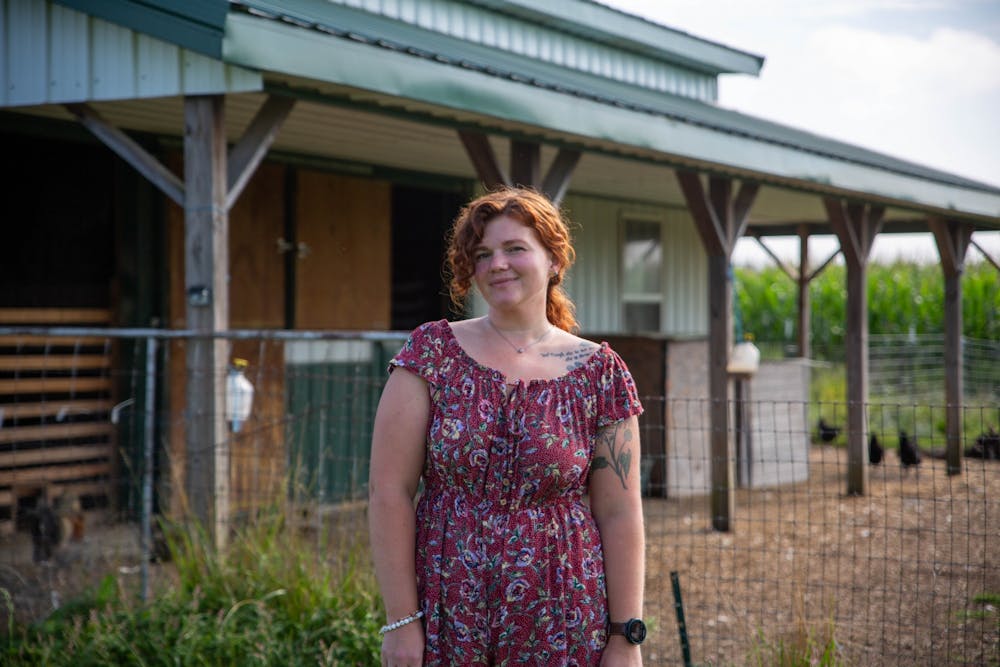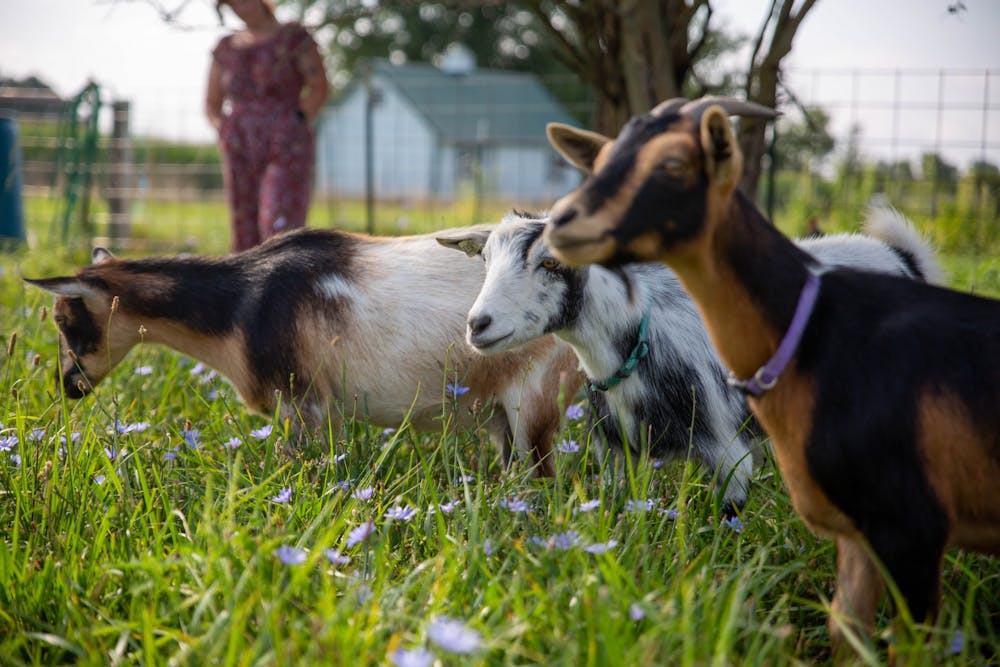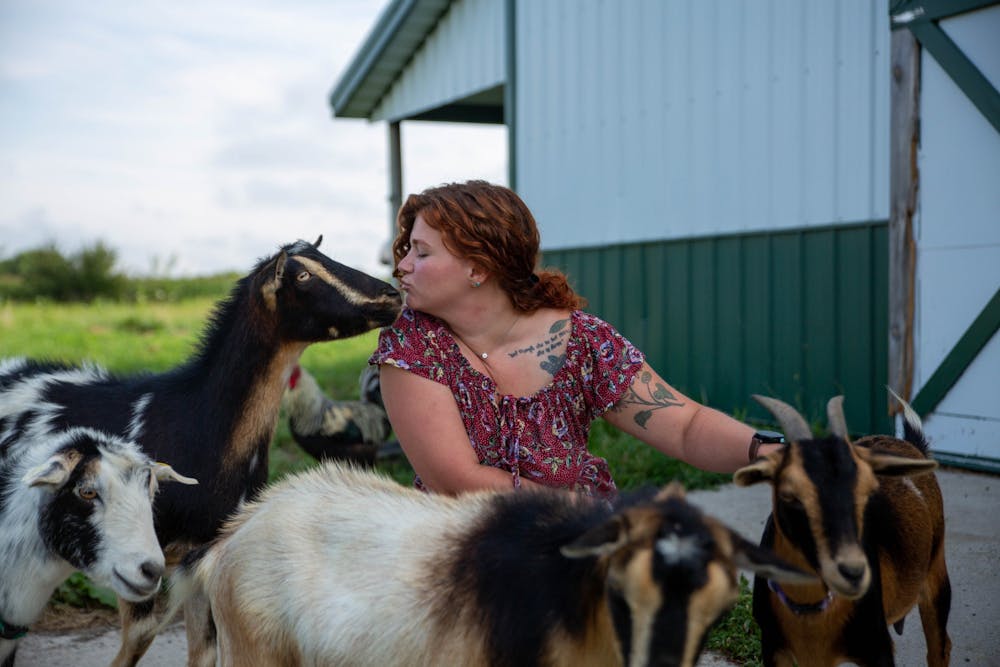To find out more about Erica Markley's products, follow her on Instagram or Facebook. You can also check out her Etsy page.
When Erica Markley’s 9-year-old daughter was born, she knew she didn’t want to expose her child to harmful petroleum byproducts from store-brand soaps that could damage her sensitive skin.
After reading books on how to create your own bath products, Markley — an artist-turned-farmer with her own soap business — developed a dream of wanting to homestead and create healthy products for her daughter to use on her skin.
“Your skin is your biggest organ,” Markley said. “People don't realize that what you put on it matters.”
Now, Markley runs her own homemade soap business out of Gaston, Indiana, selling her products in stores, out of her house and on her Etsy page.
While Markley began considering homesteading in 2012, but her dream was put on hold in 2015 while she and her family waited for their house to sell in Tennessee. Markley and her family moved in with her mother-in-law in Connersville, Indiana, as their house sat on the market for more than a year.
In 2016, Markley received an offer on her house and purchased a property of just under four acres in Gaston, Indiana. In her home search, Markley looked for properties with enough room to raise goats, as goat milk is good for the skin and a main ingredient in her homemade soaps.
“[The property] had a huge horse barn — I knew that I would have the facilities for the animals that I wanted to get,” Markley said.
Markley and her family moved into the property in April 2016. Raising Nigerian Dwarf goats, 25 chickens, a couple of ducks and a pig, Petunia, Markley took the first steps in achieving her homesteading goals as she began hand-crafting her own soap made from goat milk.

Owning a property just under four acres, Erica Markley was able to find the right amount of space to raise her goats and plant vegetables like ghostbuster eggplant, butternut squash and celery in her garden Aug. 18, 2021. Sumayyah Muhammad, DN
Goat milk is healthy for skin, Markley said, because its vitamins and minerals can rejuvenate dry, damaged skin. Knowing exactly what ingredients go onto your skin is one of the benefits Markley said she finds in creating her own bath products, and her customers appreciate knowing, too.
“I love her soap because it doesn't dry out my skin, and I love the natural smells and ingredients,” said Elysia Gipson, co-owner of the Common Market in Muncie and one of Markley’s customers. “I know that she doesn't use weird, unnatural colors. She doesn't need that for it to appeal to people because it's just so good.”
In 2018, Markley started selling her soap bars and lotion to her family, friends and Muncie locals. Markley now sells her products at the Common Market, Everyday Good Life Co-Op in Missouri and an esthetician’s office in Idaho. Her products feature scents like grapefruit and bergamot, lavender eucalyptus and sandalwood.
Markley said because her lotion sells so fast, she has not put it out for wholesale as it is on shelves for only a short amount of time. It is harder for Markley to sell her lotion commercially as making soap from goat milk is easier than making lotion, she said. Because she uses frozen goat milk in her soap and fresh milk for the lotion, the process is different.
“It's first come, first serve, get-it-while-it's-hot-kind of thing,” Markley said. “If you mix the lye with fresh milk, it burns out all the good stuff in the milk because it gets really hot, so I start out with a frozen liquid and it keeps all the goodness inside.”

Imogen, the goat responsible for most of the “goodness” found inside Markley’s products, produces nearly half a gallon of milk a day, Markley said. Because of Imogen, Markley has been able to store 100 bags of milk, which equates to about 1,000 bars of soap.
Gipson first met Markley through a mutual friend four years ago. Before Gibson and her husband invested in the Common Market, Gipson said she would purchase Markley’s soap for herself and as gifts for her family and friends.
“You can tell, you know, how much she loves doing it … she’ll do a video to show [the process],” Gipson said. “It's really humble.”
Molly Warnes Schaller, another customer of Markley’s, met her when both of their husbands worked at the same fire station and on the same shift four years ago. Schaller said she wanted to buy from Markley because she loves supporting local businesses, especially those run by women.
Not only does Schaller find Markley’s choice of scents creative, but she said she loves knowing where her products originate.
“It's really fun to have met the goats that her milk comes from,” Schaller said. “It's a special aspect of her product.”
Contact Sumayyah Muhammad with comments at smuhammad3@bsu.edu or on Twitter @sumayyah0114.





